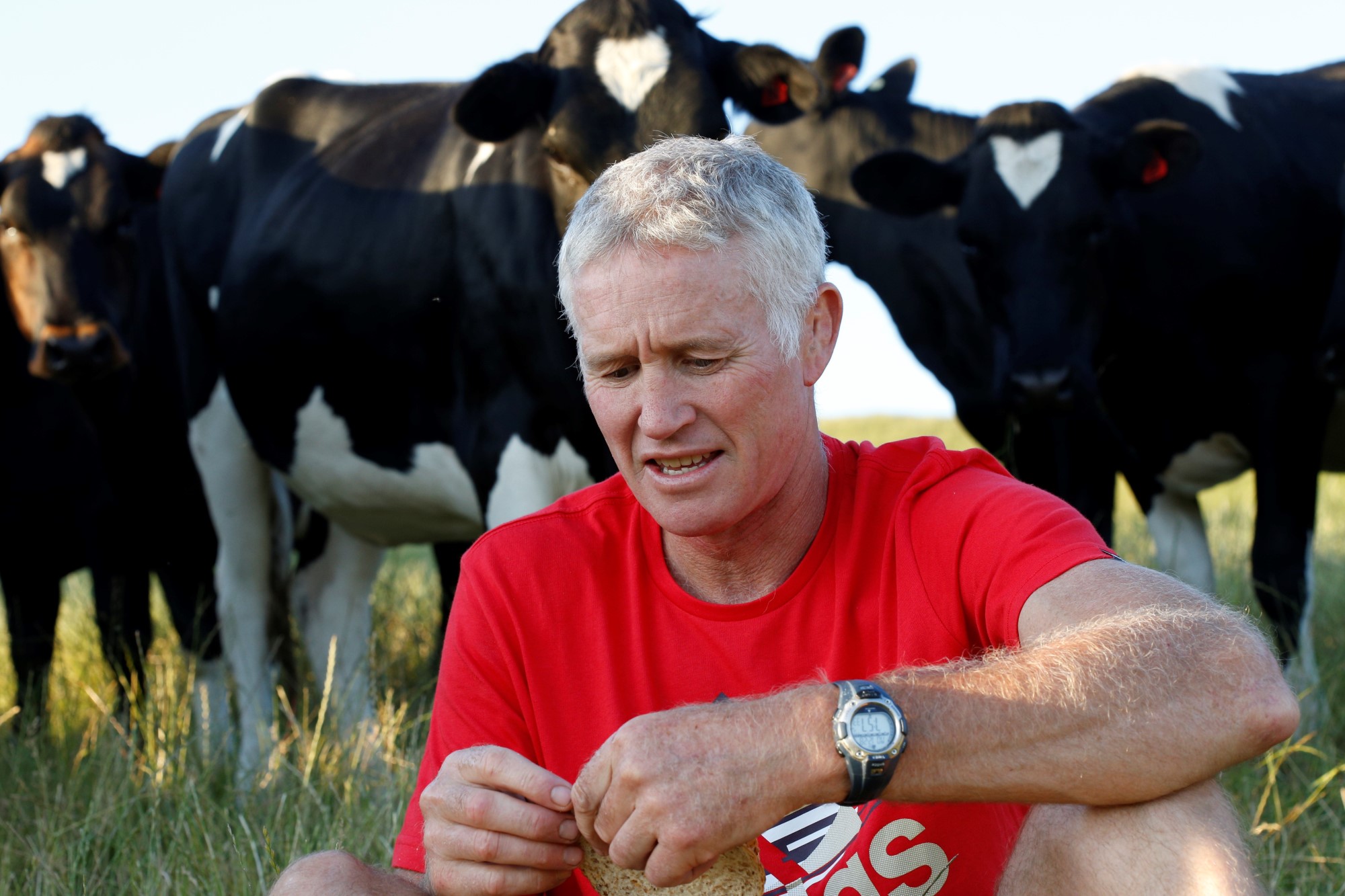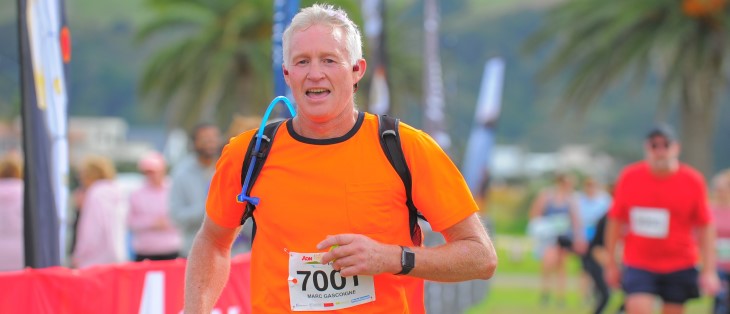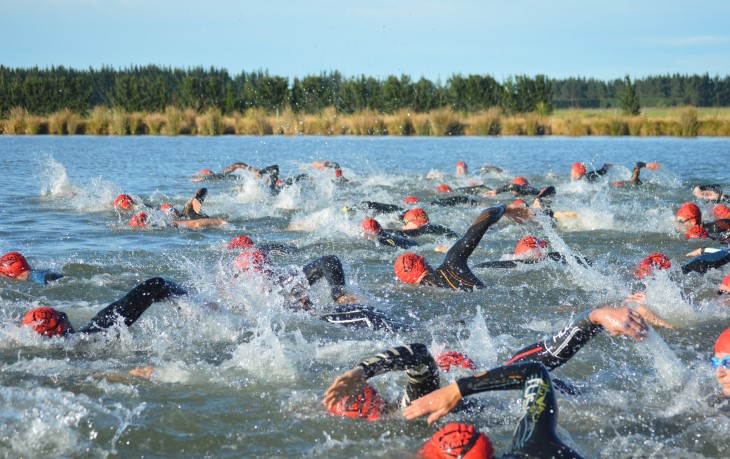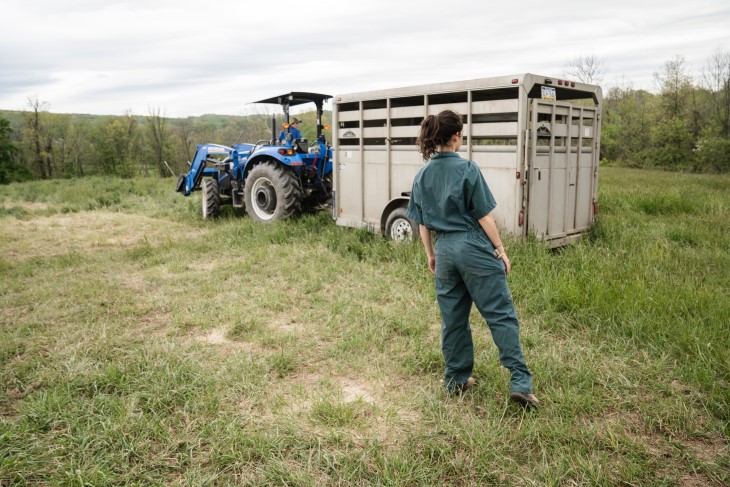How a farmer bounced back from depression

Stress is causing many New Zealand farmers to suffer preventable injuries. Marc Gascoigne talks about his journey and his advice to others.
Marc Gascoigne remembers sitting at the kitchen table on his farm with a to-do list in front on him. He stayed there for 30 minutes staring at his list. He didn’t move.
The Cambridge farmer, who has worked in Waikato since 1992, suffered depression and anxiety six years ago. He is now taking proactive steps to protect his mental and physical wellbeing.
“My experience of depression was that I just couldn’t think straight,” he says.
“I couldn’t make simple decisions. I was so stressed and fatigued that my brain went into fight-or-flight mode. I wasn’t coping.”
Stress causes over half of farm-related injuries
Marc is not alone.
An ACC-funded study for Farmstrong shows 58% of recently-injured farmers linked their injuries to stress associated with farm work. A quarter of them said it was a major factor.
Exhaustion, lack of sleep, the stresses of farming, isolation from friends and family, and being unable to take a break. Those all add to the risks that a farmer or farm worker will have an accident, the research shows.
“My brain told my body that something was seriously wrong and I was under attack, so it just shut down,” Marc says.
“It was telling me there was a threat to my life and it took away all my decision making. On the farm, that’s really dangerous because you have to make little decisions all day, every day.”
A harrowing near-miss
Marc says the farm is a high-risk environment, particularly if you’re not thinking clearly.
He remembers one day when he could’ve seriously hurt himself. He was herding his cows when one of them bolted. He took after her on his quad bike and flipped it on its side.
“It was bloody dangerous,” he says.
“These days, I’d just let her go and sit back and have a breather.”
He is sharing his story to help others who are in the same situation.
“I would never have talked about my depression six years ago,” he says.
“I would've been horrified to share my story then. But I realise it’s important to tell people what you’re going through so they can help.”
Helping farmers be at their best
Agriculture is New Zealand’s biggest export earner. But it's also one of our most high-risk industries.
In 2020, there were 22,796 farm-related injury claims accepted, which came at a cost of $84 million to help people recover. That is over 60 farmers getting injured every day.
In all, ACC has spent more than $383 million on farm-related injuries in the past five years, with the cost in 2020 the highest from this period.
Between 2015-2020, we spent
In the Waikato, there were
In 2020, we accepted
In 2020 alone, there were 4,405 farm-related injuries in Waikato. This was the highest number for the past three years.
Waikato has had the highest number of farm-related injuries in the past five years in New Zealand, ahead of other prominent farming regions such as Canterbury (17,761), Manawatu-Whanganui (10,641) and Otago (9,659).
Farmers need to make time for wellbeing
Marc says he now has two priorities for looking after his mental wellbeing. He exercises every day and makes sure he connects with people.
“I found doing some exercise, getting out for a run or a cycle, really helped with my depression and just cleared my head,” he says.
“A lot of farmers will tell you they simply don’t have time or the energy to do that sort of stuff. But I just found that break gave me so much more energy and it needs to be a priority.”
He says it’s important to have an event to train for or train with a group of mates so it gives the exercise more meaning and accountability.
When dealing with depression, he says you often don’t feel like mixing with people.
“You just want to sit at home by yourself, which is the worst thing you can do.”
These days, he connects with as many people as he can every day.
“Just everyday things like talking to the cashier in the supermarket. They always say ‘Hi, how’s your day been?’ I used to think ‘Man, I don’t have time to talk about that with you’.
“Now I really make an effort and that improves my wellbeing and I have a better day. I recommend connecting with as many people as you can to improve your mental wellbeing.”
He also stresses the importance of taking time out, getting off the farm and having a break.

Helping farmers help themselves
ACC Head of Workplace Safety Virginia Burton-Konia says all farmers need to prioritise their wellbeing. Many injuries are preventable.
“Farmers spend their lives growing our food and milk and helping our economy but they're not great at looking after themselves,” she says.
“We are challenging all New Zealanders to ‘have a hmmm’. It’s important for farmers to take a moment to think about what they are about to do and what could go wrong to prevent injury.”
Farm-related injuries by the numbers
- In 2020, there were 22,796 farm-related injury claims accepted, which came at a cost of $84 million to help people recover.
- In all, ACC has spent more than $833 million on farm-related injuries in the past five years, with the cost in 2020 the highest from this period.
- In the past five years in Waikato, there were 22,652 farm-related injury claims accepted, with 4,405 injuries occurring in 2020. This was the highest number for the past three years.
- Waikato has had the highest number of farm-related injuries in the past five years in New Zealand ahead of other prominent farming regions such as Canterbury (17,761), Manawatu-Whanganui (10,641) and Otago (9,659).
Farmstrong is a rural wellbeing initiative for farmers and growers to help them ‘live well to farm well’. It encourages farmers to share their stories and look after themselves as well as they do their pasture and livestock.
ACC became a strategic partner of Farmstrong in 2016, joining rural insurer FMG and the Mental Health Foundation.
Last year, we increased our investment to $3.5 million over the next five years.
For more information about Farmstrong, visit their website.
Marc works with Rural Support Trusts, which are here for rural people and farming families across New Zealand.
If anyone wants to talk about having depression and anxiety issues, visit their website.




